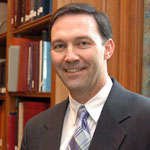Commentary on Psalm 23
Psalm 23 is one of the best-known and most often-quoted passages in the Bible.
The psalm is commonly used in the context of death and the funeral service. But the psalm’s language and imagery may be more fitting for the season of Easter when the Church tries to discern how to live in light of Christ’s resurrection. Indeed, Psalm 23 is more about how a person lives in relationship to God than how one faces death or finds security beyond the grave.
Psalm 23:1 summarizes the message of the whole. Verse 1a declares, “The Lord is my shepherd” and thus acknowledges God as the one who protects and guides. It is important to recognize, however, that “shepherd” connotes more than someone who herds sheep. Shepherd was a royal metaphor in the ancient Near East. Therefore, to call God shepherd is to acknowledge God as one who rules over one’s life, to surrender to the will to God.
After the metaphorical statement, “The Lord is my shepherd,” verse 1b adds the unqualified phrase “I shall not want” which could also be rendered “I have no lack.” The absolute character of this second phrase is striking. It suggests the Lord is all one really needs, that God’s shepherding care provides all that is essential to life.
The rest of the psalm illustrates how and why this is true. The list of provisions in verses 2-5, however, should not be understood as a restrictive list of what a person needs (e.g. food, water, safety, protection from enemies). A close reading of verse 5 shows God’s extravagant care of the psalmist. This verse shifts the imagery, from shepherd to host. As a host who gives refuge to the psalmist beset by enemies, God offers abundant food and drink, oil for grooming, as well as the assurance of safety. The expression “my cup overflows” the psalmist not only has basic provisions, but also enjoys abundance.
The final verse continues the language of riches and blessing with two hopeful claims. The first claim is that “Surely goodness and mercy shall follow me all the days of my life” (verse 6a). That “goodness” will follow the psalmist probably needs no explanation. The second term, “mercy” translates the Hebrew word hesed, which is used of Yahweh’s covenant faithfulness. The psalmist is claiming that the way of Yahweh, as illustrated by Yahweh’s faithful rescue of the Israelites from Egypt, providing guidance in the wilderness, and helping them possess the promised land, will be the way of Yahweh with the psalmist.
The psalmist’s second hope is that “I shall dwell in the house of the Lord my whole life long” (verse 6b). The house of the Lord is the Jerusalem Temple (see Psalm 27:4). This final line qualifies the nature of abundant provision the psalmist enjoys. Namely, the blessings of being shepherded by God are directly related to being in God’s presence. Psalm 27:4 offers an apt parallel: “One thing I asked of the Lord, that will I seek after: to live in the house of the Lord all the days of my life, to behold the beauty of the Lord, and to inquire in his temple.” Indeed, Psalm 23 essentially says that the best thing about having the Lord as shepherd is having the Lord as shepherd.
Although Psalm 23 is spoken by an individual, it connects with a wide association of texts that incorporate the experience of Israel. The Old Testament associates God’s shepherding with two defining experiences in Israel’s corporate life: the exodus/wilderness (Psalm 77:20; 78:52-53; 80:1) and the exile (Isaiah 40:11; 49:9-10).
The former speaks of Yahweh’s rescue and presentation to the promised land; the latter offers hope for a return to that land. The wilderness experience in particular echoes throughout Psalm 23. For example, “I shall not want” (which also could be translated, “I do not lack”) recalls Deuteronomy 2:7, which states that during the forty years in the wilderness the Israelites “have lacked nothing;” “He leads me in the right paths” is similar to Exodus 15:13, which says God guided Israel to a holy habitation; “You prepare a table before me” sounds much like Psalm 78:19, which declares that God can “prepare a table in the wilderness” for the people.
The shepherd metaphor, with all its varied expressions, raises the historical memory of a people shepherded by God. Unique to Psalm 23, however, is the extremely personal expression of God’s care. Nowhere else in the Bible does anyone say, “the Lord is my shepherd.” Herein lies the key to the vibrancy of Psalm 23 in the life of faith. This poem draws from a communal consciousness about God as a shepherd for the nation, but here the psalmist expresses this understanding in very personal terms.
Many people in the ancient world believed in personal gods. Usually those individualistic expressions of relationship referred to a lesser deity in a pantheon. In Psalm 23, however, the psalmist declares that the Sovereign of the universe, the Creator of all things, can be described using “my,” that the Lord attends to me in a personal way.
The shepherd image appears not only as part of the Old Testament but as a vital part of the New Testament as well. For Christians, Psalm 23 foretells the words of Jesus, “I am the good shepherd” (John 10:11), and the writer of 1 Peter who declares that Jesus is the “shepherd and guardian” of souls who leads believers when they are “going astray like sheep” (2:25).
These connections are appropriate for reading Psalm 23 in the Easter season. During this time, however, we should also remember the tradition of reading the Psalms as Jesus’ own prayers. It reminds us that Jesus is the chief example of one who depended on God while in trouble and who sought God above all else. Perhaps Jesus is the only human being who could really claim, “The Lord is my shepherd; I have no lack.”

April 29, 2012